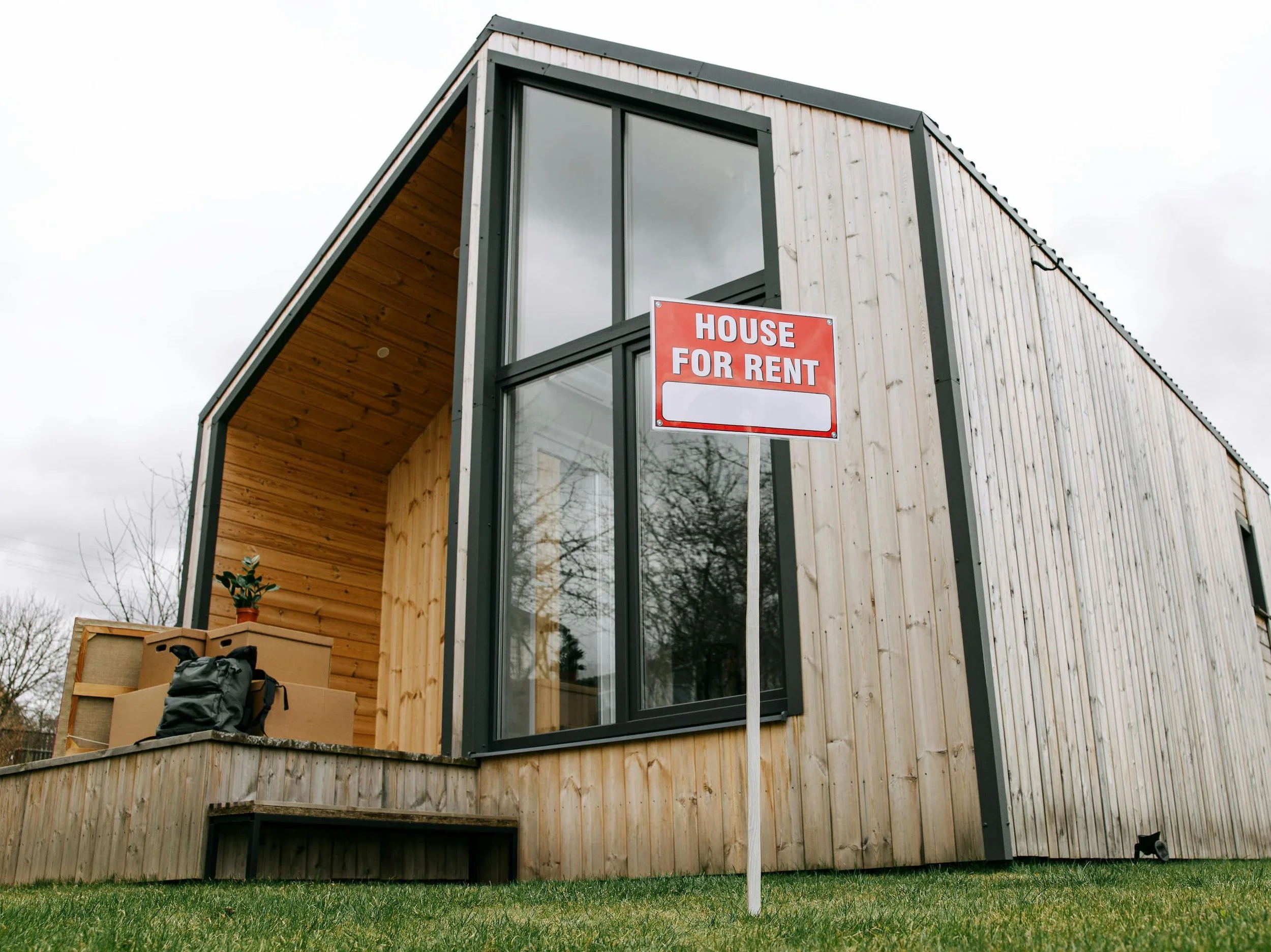Chicago Cash Sale: When Tenants Can’t Pay
Owning rental property in Chicago can feel like riding a roller coaster: rewarding at its best and frustrating at its worst. One of the most stressful moments for any landlord is dealing with tenants who fail to pay rent on time, or not at all. While this is challenging enough, it can be even more problematic when the property itself requires major repairs or fails to meet city code requirements. This intersection of tenant vulnerabilities and housing conditions often pushes landlords to consider selling their property for cash.
In this post, we’ll explore why selling your Chicago rental property for cash can be a strategic solution when dealing with persistent non-payment and substandard housing conditions. We'll look at the reality of late rent, the legal and financial pressure landlords face, and how cash buyers can help turn a crisis into an opportunity.
Understanding the Chicago Context: Non-Payment and Housing Conditions
Chicago is a city with a complex rental market. The cost of living has climbed steadily, while wages for many tenants have not kept up. As a result, some tenants end up missing rent payments, not because they’re unwilling to pay, but because they’re financially stretched.
At the same time, many older properties in Chicago need ongoing maintenance. Roof leaks, outdated electrical systems, plumbing problems, and even structural concerns can make keeping a building habitable an uphill battle. When tenants struggle to pay rent, landlords often lack the funds to complete needed repairs, creating a cycle of deferred maintenance and tenant vulnerabilities.
Under Chicago’s Residential Landlord-Tenant Ordinance (RLTO), landlords are responsible for keeping rental units in compliance with city codes. Failing to do so can lead to fines, lawsuits, or tenant rent withholding. In some cases, tenants can even claim constructive eviction, further reducing rental income.
Legal Pressure Meets Financial Stress
For landlords facing months of non-payment, the legal route can feel daunting. Chicago requires landlords to issue a 5-day notice to pay or quit before starting eviction proceedings. If tenants can’t catch up, landlords must file an eviction in court, which can take weeks or even months to resolve.
During that time, landlords still have to pay mortgages, property taxes, insurance, and often, escalating maintenance costs. If the property already has housing code violations, the legal and financial risks compound quickly.
Even if an eviction succeeds, landlords often face repair costs and turnover expenses before a new tenant can move in. In a worst-case scenario, a property’s reputation suffers, making it harder to attract qualified renters.
Faced with these pressures, some landlords start to consider a cash sale, not as an act of defeat, but as a smart, proactive business decision.
Why Sell for Cash?
1. Fast closings avoid deeper losses
Cash buyers are often real estate investors who understand the local market and specialize in distressed properties. Because they don’t rely on traditional bank financing, cash buyers can close in days instead of weeks or months.
For a landlord with mounting legal fees, overdue property taxes, or urgent repair needs, speed matters. A fast cash sale can prevent further losses and free up capital to invest in a new opportunity.
2. Sell “as-is”—skip expensive repairs
One of the biggest barriers to selling a rental property is its condition. Traditional buyers (and lenders) often demand repairs before closing. But cash buyers purchase properties as-is, taking on the responsibility of repairs and renovations themselves.
For landlords whose properties have outdated plumbing, leaking roofs, or electrical problems, selling “as-is” eliminates the need to invest tens of thousands of dollars just to sell.
3. Avoid the eviction maze
If your tenants aren’t paying and you’re mid-eviction—or don’t want to start an eviction—cash buyers often buy properties with tenants in place. They know how to handle eviction proceedings and can take that stress off your plate.
This means you can sell the property even with problematic tenants and walk away without waiting months for the court process to play out.
4. Turn a liability into liquidity
A property with deferred maintenance and non-paying tenants isn’t just unprofitable—it’s a liability. Every month, it sits empty or occupied by non-paying tenants, it costs money. Selling for cash converts that liability into liquidity you can use for new investments, debt repayment, or simply to reduce your risk exposure.
5. Ethical relief for tenants
Sometimes, landlords hesitate to sell because they worry about what will happen to tenants. However, a responsible cash buyer typically plans to renovate the property, bringing it up to code and enhancing living conditions. In the long run, this can actually benefit tenants who’ve been living in substandard units.
Keywords to know: cash buyers, deferred maintenance, eviction, as-is sale, landlord risk
In Chicago, these five terms often come up when discussing why landlords choose to sell rental properties:
Cash buyers: Investors who purchase properties quickly without financing.
Deferred maintenance: Repairs or upgrades that have been postponed due to cost or tenant issues.
Eviction: Legal process landlords use to remove tenants who don’t pay rent or violate the lease.
As-is sale: Selling the property in its current condition without repairs.
Landlord risk: Financial and legal exposure from problematic tenants or unsafe housing conditions.
These concepts explain why many Chicago landlords choose to exit properties with persistent tenant and maintenance challenges.
The Human Side: Tenant Vulnerabilities
It’s essential to recognize that behind every late payment is often a tenant facing genuine financial hardship. Low-income tenants, especially in older buildings, may live with broken appliances, leaks, pests, or worse. For some landlords, the cost of fixing these issues is too high relative to the rental income the property can generate.
In these cases, selling to a cash buyer who plans to renovate can help tenants in the long run. By investing in repairs and modernizing the building, the buyer improves safety and comfort. While not every outcome is perfect, it can break the cycle of neglect and deferred maintenance.
When to Consider Selling for Cash?
Selling for cash isn’t always the answer, but it’s worth considering if:
You’ve had multiple months of unpaid rent
Your property has significant deferred maintenance or city code violations
You’re facing legal action or high fines for non-compliance
You’re tired of eviction proceedings or tenant disputes
You want to reinvest your capital elsewhere
If one or more of these apply to you, a cash sale might be the cleanest and most strategic exit.
How the Process Works
Selling for cash in Chicago is usually straightforward:
Contact cash buyers who specialize in Chicago rentals or distressed properties.
Get an offer, typically based on market conditions and the cost of repairs.
Accept the offer and sign a purchase agreement.
Close quickly, often in as little as 7–14 days.
Because there’s no lender involved, the process skips inspections, appraisals, and contingencies that slow traditional sales.
Bottom Line
Being a landlord in Chicago isn’t easy, especially when you’re caught between unpaid rent and costly repairs. But it doesn’t have to mean bankruptcy or endless legal fights.
Selling your property for cash can transform a stressful, money-losing situation into a clean exit. By doing so, you reduce landlord risk, avoid eviction hassles, and often help tenants by handing the property over to someone ready to invest in repairs.
If you’re struggling with tenant vulnerabilities and deferred maintenance, it may be time to explore this option, not as a last resort, but as a smart, forward-looking move for your financial health and peace of mind.
If you'd like to learn more about cash buyers, eviction alternatives, or how to get a fair cash offer for your Chicago property, sometimes the best investment is knowing when to step back and let someone else take over.




